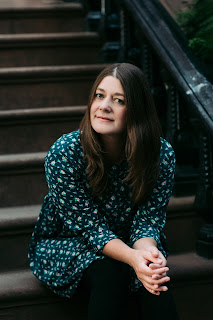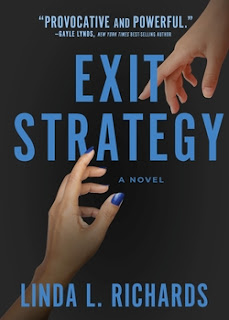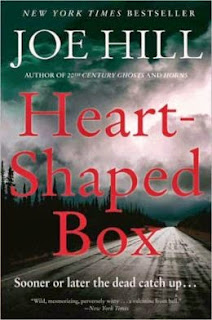Davida G. Breier was born in Miami, FL and spent her formative years in Florida, rural Minnesota, urban New Jersey, and suburban Pennsylvania. She’s worked as a youth sports photographer,

TV extra, substitute teacher, jewelry maker, bookseller, and ATM cleaner. Breier discovered the world of zines and independent publishing in 1994 and Baltimore’s City Paper awarded her with “Best Local Zinester” in 2000 and “Best Zine” in 2003. She won the Literary Death Match, Baltimore 3.0 event in 2011. She’s spent the last two decades in various roles within the book industry and currently works for Johns Hopkins University Press. Breier lives in Maryland with her family, a pack of wee rescue dogs, a rescue tortoise, and two companion chickens.
Her new novel is
Sinkhole.
At CrimeReads Breier tagged
nine books featuring teens behaving badly, including:
This Is How I Lied by Heather Gudenkauf
 Again, we have adults reckoning with their deadly lies as teenagers. Twenty-five years ago, sixteen-year-old Eve Knox was found murdered in her hometown of Grotto, Iowa. Discovered by her best friend, Maggie, and Eve’s peculiar sister Eve, there were multiple suspects, but the case was never closed. Maggie father was Chief of Police, so it’s no surprise that Maggie also goes into law enforcement. Now, twenty-five years later, Maggie is faced with a new piece of evidence and begins unearthing secrets, including her own.
Again, we have adults reckoning with their deadly lies as teenagers. Twenty-five years ago, sixteen-year-old Eve Knox was found murdered in her hometown of Grotto, Iowa. Discovered by her best friend, Maggie, and Eve’s peculiar sister Eve, there were multiple suspects, but the case was never closed. Maggie father was Chief of Police, so it’s no surprise that Maggie also goes into law enforcement. Now, twenty-five years later, Maggie is faced with a new piece of evidence and begins unearthing secrets, including her own.
Read about
another entry on the list.
This Is How I Lied is among
Nicole Baart's six top Midwestern mysteries.
The Page 69 Test: This Is How I Lied.
--Marshal Zeringue
 Mary Ann Sieghart leads a portfolio life. She makes programs for BBC Radio 4 and is a Visiting Professor at King’s College London. She spent 2018-19 as a Visiting Fellow of All Souls College, Oxford, where she researched her book, The Authority Gap, on why women are taken less seriously than men. She is Chair of the judges for the Women’s Prize for Fiction 2022.
Mary Ann Sieghart leads a portfolio life. She makes programs for BBC Radio 4 and is a Visiting Professor at King’s College London. She spent 2018-19 as a Visiting Fellow of All Souls College, Oxford, where she researched her book, The Authority Gap, on why women are taken less seriously than men. She is Chair of the judges for the Women’s Prize for Fiction 2022.
Lee Child: The Last Widow by Karin Slaughter
















































